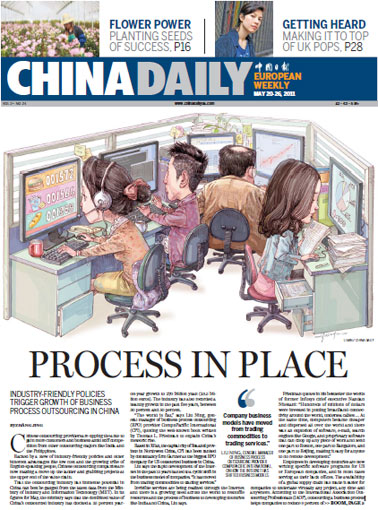Politics
PBOC adviser: US clout impedes reform of IMF
Updated: 2011-05-25 08:09
By Kevin Yao (China Daily/Agencies)
BEIJING - Emerging economies should have a say in who should take the helm of the International Monetary Fund, but overhauling the global agency is more important than the succession issue, an adviser to the People's Bank of China said on Tuesday.
Xia Bin, who sits on the central bank's monetary policy committee, also told Reuters that reform of the IMF will not make significant progress unless the United States is willing to give up its dominant voting share in favor of developing countries.
|
||||
The French Finance Minister Christine Lagarde has emerged as a front-runner to succeed the fund's former managing director, Dominique Strauss-Kahn, but developing economies, with growing their global clout, are keeping the pressure on Europe and the United States to avoid a backroom deal over the appointment.
"The voice of emerging-market economies should be heard, but emerging markets must realize that reform of the global monetary system is a long process," Xia said.
The voting shares reflect the relative size of member countries' economies.
In November, the IMF agreed to boost the voting power of large emerging economies, enabling China to leapfrog Germany, France and Britain in the fund's power rankings, with its quota share rising to 6.19 percent from 3.65 percent.
Under the latest adjustments, the United States remains the IMF's most powerful member, with 17.67 percent of the overall quota, effectively giving it power of veto at the fund.
Xia said he hoped a candidate from China could compete for the IMF job but added that it's unrealistic to expect the country to play a big role in IMF policy decisions anytime soon.
Turning to the domestic issues, Xia said the government is not too concerned about slower economic growth and is likely to maintain its tighter policy to fight inflation.
Reuters
E-paper

Thawing out
After a deep freeze in sales during the recession, China’s air conditioner makers are bouncing back
Cool Iron lady
Of good and evil
Build on security initiatives
Specials

Memory lanes
Shanghai’s historic ALLEYS not just unique architecture but a way of life

Great expectations
Hong Kong-born singer songwriter rises to the top of the UK pops.

A diplomat of character
Belgian envoy draws on personal fascination to help build China ties.




